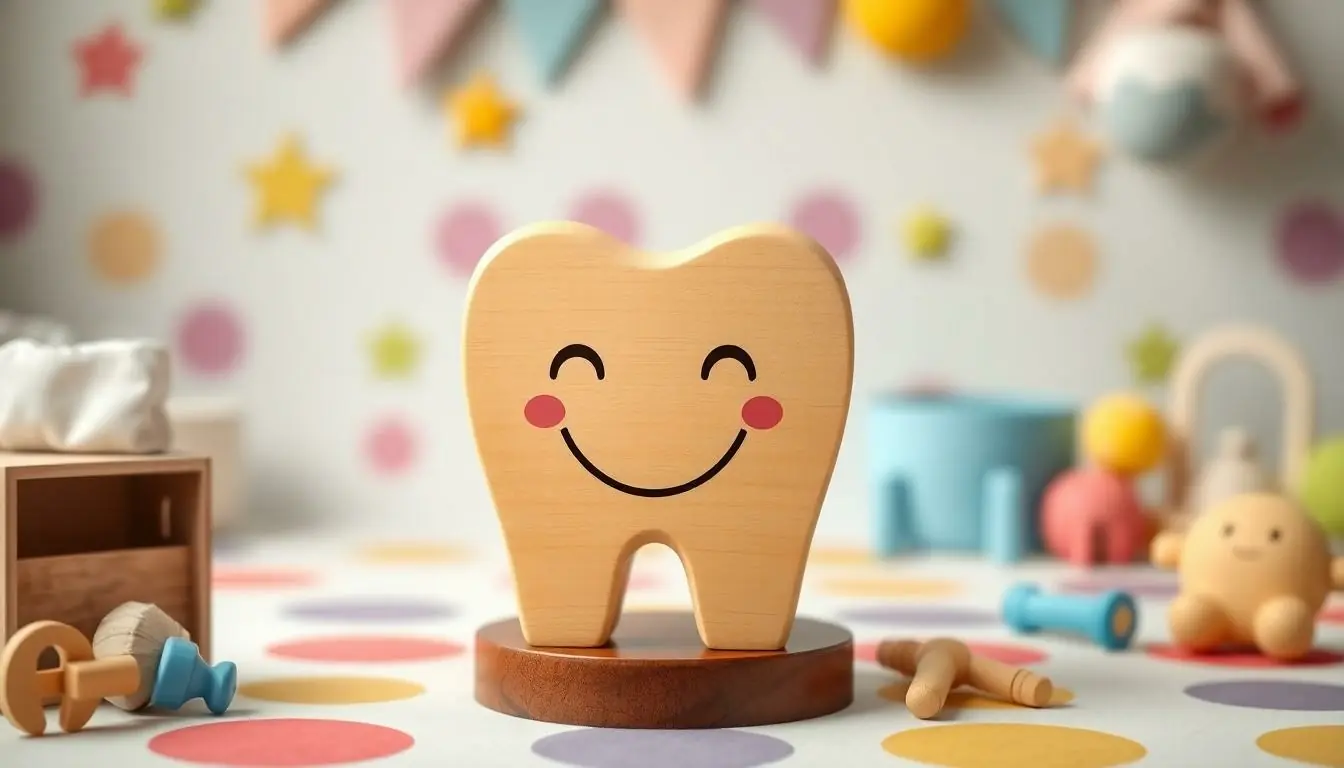When it comes to tiny toes and baby giggles, dental insurance might not be the first thing on a new parent’s mind. But believe it or not, those adorable toothless grins won’t last forever. Before you know it, those pearly whites will make their grand entrance, and with them comes the question: do newborns really need dental insurance?
Table of Contents
ToggleUnderstanding Newborn Dental Care
Newborn dental care is essential as babies begin to grow their first teeth. Early dental attention can prevent issues and promote overall oral health.
Importance of Early Dental Visits
Early dental visits foster a positive dental experience for children. Recommendations suggest scheduling the first dental check-up by age one. These visits help identify any potential oral issues early on. They also educate parents on proper dental hygiene practices for infants. Cultivating good habits now sets the foundation for a lifetime of healthy teeth.
Common Dental Issues in Newborns
Newborns may encounter several common dental issues. Dental problems can include early tooth decay, known as baby bottle tooth decay. Gum infections can also arise, causing discomfort and pain. Teething discomfort occurs as teeth break through the gums, affecting sleep and feeding. Additionally, misalignment of teeth can start early, impacting future dental health. Addressing these issues promptly aids in managing symptoms effectively and sets the stage for better long-term dental care.
Do Newborns Need Dental Insurance?

Newborns require early dental care, making dental insurance an important consideration for parents. Understanding the options available and the benefits of coverage can help families make informed decisions.
Coverage Options for Newborns
Coverage options specifically for newborns vary by insurance provider. Many plans include preventive services, which cover dental check-ups and cleanings. Some policies offer partial coverage for treatments addressing issues like early tooth decay or gum infections. Others may include orthodontic assessments as children age. Parents should read the details carefully to identify which services are included and any potential limitations.
Benefits of Having Dental Insurance for Newborns
Having dental insurance brings significant benefits for newborns. First, it promotes timely access to professional dental care. Regular visits establish a foundation for good oral hygiene practices. Coverage also alleviates some financial burden associated with routine and unexpected dental treatments. By addressing potential issues early, parents can prevent more serious problems from developing in the future. Investing in dental insurance helps ensure comprehensive care for a child’s growing teeth and gums.
Factors to Consider When Choosing Dental Insurance
Choosing dental insurance for newborns requires careful consideration of several factors. Evaluating these aspects ensures that parents select the best plan for their child’s needs.
Cost of Dental Care for Newborns
Costs associated with dental care can vary significantly. Preventive services like check-ups and cleanings may range from $100 to $200 per visit. Treatments for issues such as early tooth decay or gum infections can increase expenses, often reaching $500 or more depending on severity. Dental insurance usually covers preventive services, making them more affordable. Knowing the average costs allows parents to compare different insurance plans effectively.
Availability of Pediatric Dentists
Access to pediatric dentists plays a crucial role in choosing dental insurance. Pediatric dentists specialize in treating younger patients, ensuring tailored care for newborns and toddlers. Finding a plan that includes a network of pediatric dentists is essential, as it guarantees that specialists are available when needed. Depending on location, availability may differ, with some areas having limited options. Researching local pediatric dental practices ensures parents select insurance that aligns with their child’s needs.
Alternative Options for Dental Care
Parents can explore several alternatives for dental care if considering dental insurance for newborns. These options help ensure access to essential dental services.
Government Programs and Aid
Numerous government programs provide assistance for dental care. Medicaid offers benefits that include dental services for eligible families, covering check-ups and treatments for children under age 21. Additionally, the Children’s Health Insurance Program (CHIP) extends similar benefits to families with higher incomes who don’t qualify for Medicaid. Parents should check their state’s specific program details to access these benefits effectively.
Community Dental Services
Community dental services play a vital role in offering affordable dental care. Many local health departments and non-profit organizations provide free or low-cost dental screenings and treatments for children. Often, these services focus on preventive care, helping parents develop good oral hygiene practices for their newborns. Families can also find oral health education workshops hosted by community groups, aiming to inform parents about dental care for young children.
Investing in dental insurance for newborns is a proactive step toward ensuring their long-term oral health. Early dental visits can prevent serious issues and establish healthy habits. By understanding the available coverage options and costs, parents can make informed decisions that benefit their child’s dental care.
Additionally exploring alternative resources like government programs and community services can provide essential support for families. Prioritizing dental health from the start sets the foundation for a lifetime of healthy smiles.

